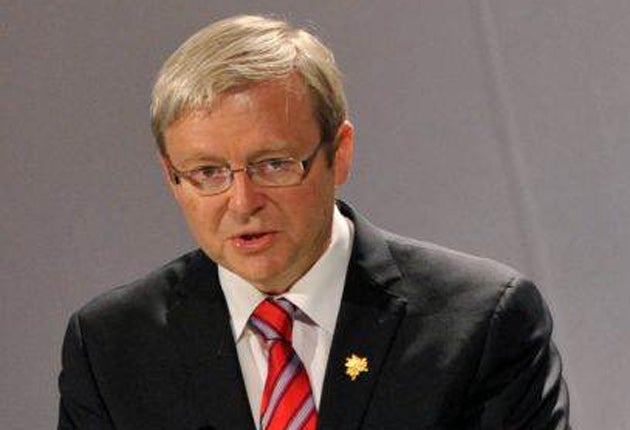"Operation Titstorm" hackers declare cyber war on Australia

Australia is poised to introduce some of the most severe internet restrictions in the democratic world – and the hackers don’t like it.
Yesterday they vented their ire on government websites, shutting them down in co-ordinated attacks and plastering the Prime Minister’s home page with pornography. Kevin Rudd’s site became the home, temporarily, of “Operation Titstorm”, part of an assault targeting a range of government servers.
The Australian parliamentary website was crippled for almost an hour; among the ministries affected was the Communications Department, which is pressing for a compulsory internet filter for pornography. One cyber security expert, Alastair MacGibbon, described the attacks as “the equivalent of parking a truck across the driveway of a shopping centre”.
The strikes were launched by hackers aligned with an internet protest group known as Anonymous. Although the Australian government knew about the assault last Friday, it could not prevent it.
The federal government plans to introduce a mandatory filtering system by 2011 that would block websites featuring obscene and criminal related material, making Australia one of the most rigorous internet regulators.
Join our commenting forum
Join thought-provoking conversations, follow other Independent readers and see their replies
17Comments